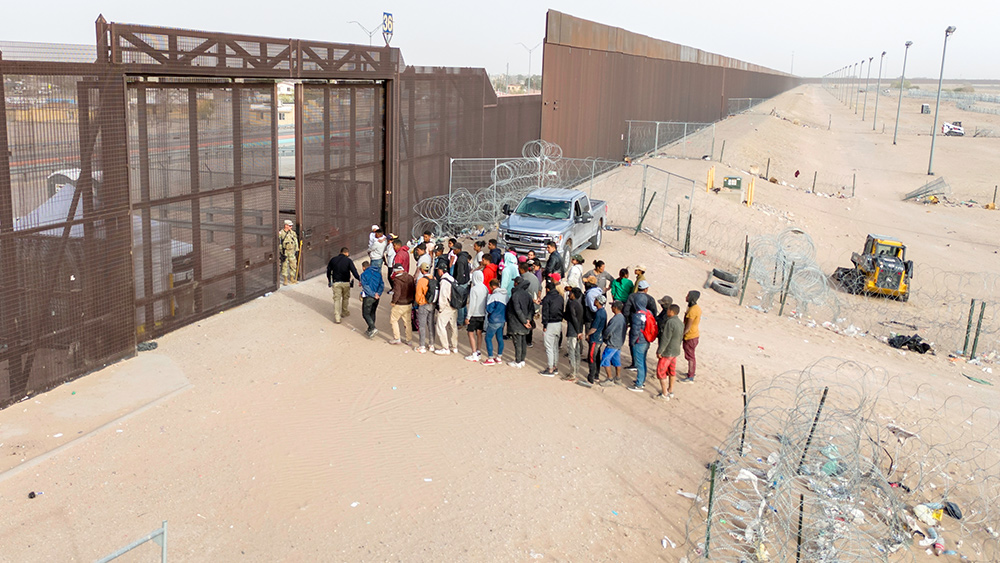
Denver appears to be having a change of heart after declaring itself a “sanctuary city” as a top city official was recently recorded begging a group of illegals to leave the city and head somewhere else.
The official in question is a political director for the city’s Democratic mayor, Mike Johnston. His name is Andres Carrera, and he also serves as Denver's "newcomer communications liaison," meeting busloads full of illegals as they arrive in the city. He was recorded making his plea to a group that arrived in Denver on March 26 after being sent there by Texas Governor Greg Abbott.
Addressing them in Spanish, he said: “New York gives you more. Chicago gives you more. So I suggest you go there, where there is a longer-term shelter. There are also more job opportunities there.”
He explained that the 40,000 migrants who are already in Denver have taken the jobs, resources and other opportunities that were available. He said that while the city won’t stop them from staying there, they will find better opportunities elsewhere.
Carrera even warned them that they would “suffer even more” if they stayed there.
He promised the group that Denver will buy them a bus ticket to any city they want, saying: “You don’t have to walk anywhere. We can buy you a free ticket. You can go to any city. We can take you up to the Canadian border; wherever, wherever.”
A spokesperson for the city clarified that they won’t buy illegals tickets to Canadian cities, but they will help them travel to U.S. cities close to the border upon request.
Near the end of the talk, he asked how many migrants were interested in leaving Denver and heading to a different city, and there were very few takers. When he asked who wants to stay in Denver, however, one answered “Todos,” or “Everyone.”
Denver’s current policy is housing individual migrants for up to two weeks and families with children for up to six weeks before they have to leave the shelters. They have allocated more than $100 million for housing, education and medical care for asylum seekers, but now the number could end up hitting $180 million, which represents 15 percent of the city's yearly budget.
Denver has recently started clearing out migrant camps, with two of them being cleared out in one day. At one camp in front of the Elitch Gardens amusement park, the migrants, who were largely single men, refused to board a bus to a shelter and protested at first. However, 23 of them eventually accepted the offer, while nine others requested onward travel.
Many cities near Denver are trying to distance themselves from the “sanctuary city” designation. Colorado Springs’ city council approved a resolution reaffirming it is not a sanctuary city to try to discourage immigrants from going there, while Aurora has passed a similar resolution and asserted that they do “not currently have the financial capacity to fund new services related to this crisis.”
Sanctuary cities are filled with regret
Denver isn't the only self-proclaimed sanctuary city that is quickly regretting its stance. Chicago recently emptied state-run shelters at Little Village’s Piotrowski Park and Rogers Park’s Leona Beach, bringing around 200 asylum seekers elsewhere. They came under fire when they opened up camps last year in Hispanic and black neighborhoods.
In New York City, meanwhile, around 180,000 migrants have entered since 2022. The city's “right to shelter” law means that they must offer housing and food to migrants. Mayor Eric Adams says that the city is “in a precarious situation” but defended their decision to give some migrants debit cards that are preloaded with money they can use for food and basic necessities.
Liberal-run cities like Denver are quickly finding that offering themselves up as "sanctuary cities" is backfiring spectacularly, leaving them with angry residents and a very expensive problem with no easy solutions.
Sources for this article include:
Please contact us for more information.













